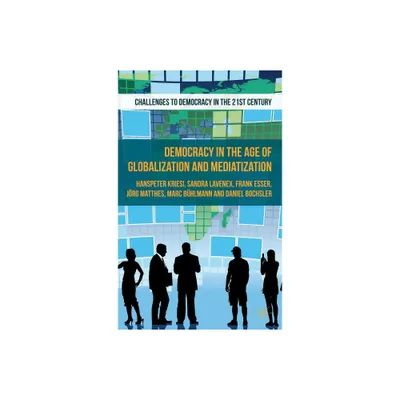Home
Democracy and Violence: Global Debates Local Challenges
Loading Inventory...
Barnes and Noble
Democracy and Violence: Global Debates Local Challenges
Current price: $200.00


Barnes and Noble
Democracy and Violence: Global Debates Local Challenges
Current price: $200.00
Loading Inventory...
Size: Hardcover
*Product Information may vary - to confirm product availability, pricing, and additional information please contact Barnes and Noble
Illustrated most dramatically by the events of 9/11 and the subsequent ‘war on terror’, violence represents a challenge to democratic politics and to the establishment of liberal-democratic regimes. Liberal-democracies have themselves not hesitated to use violence and restrict civil liberties as a response to such challenges. These issues are at the centre of global politics and figure prominently in political debates today concerning multiculturalism, political exclusion and the politics of gender.
This book takes up these topics with reference to a wide range of case-studies, covering Latin America, the Middle East, Africa, Asia and Europe. It provides a theoretical framework clarifying the relationship between democracy and violence and presents original research surveying current hot-spots of violent conflict and the ways in which violence affects the prospects for democratic politics and for gender equality. Based on field-work carried out by specialists in the areas covered, this volume will be of high interest to students of democratic politics and to all those concerned with ways in which the recourse to violence could be reduced in a global context. This book has significant implications for policy-makers involved in attempts to develop safer and more peaceful ways of handling political and social conflict.
This book was published as a special issue of
Democratizations
.
This book takes up these topics with reference to a wide range of case-studies, covering Latin America, the Middle East, Africa, Asia and Europe. It provides a theoretical framework clarifying the relationship between democracy and violence and presents original research surveying current hot-spots of violent conflict and the ways in which violence affects the prospects for democratic politics and for gender equality. Based on field-work carried out by specialists in the areas covered, this volume will be of high interest to students of democratic politics and to all those concerned with ways in which the recourse to violence could be reduced in a global context. This book has significant implications for policy-makers involved in attempts to develop safer and more peaceful ways of handling political and social conflict.
This book was published as a special issue of
Democratizations
.


















